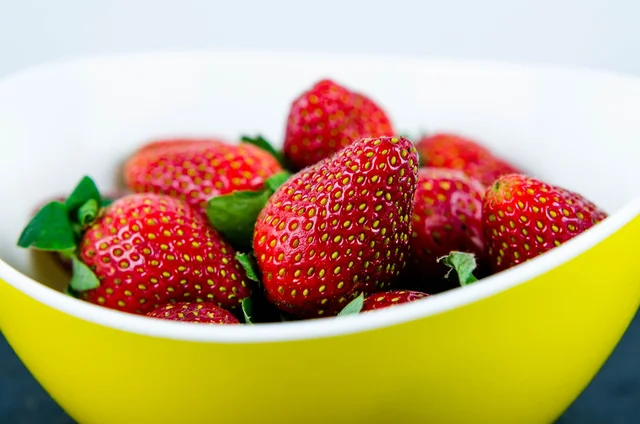All You Need To Know About Organic Food
Organic food refers to a type of agriculture which does not use synthetic fertilizers, pesticides or herbicides. Organic food is produced and grown according to specific standards. Organic food is often more fresh and delicious than non-organic foods. They are also healthier for the environment as well as the people who eat them.

How does it work?
It is more than avoiding artificial food ingredients. Organic food encompasses much more. Organic food is more than just choosing organic produce from the supermarket. It is about a holistic approach towards sustainable food production. Organic farmers, for example, strive to increase soil fertility by crop rotation and composting. They also reduce the or eliminate synthetic chemicals from their crops and employ natural pest and weed control methods. Organic farmers are also concerned with animal welfare and create healthy environments for their livestock while avoiding growth hormones and antibiotics.
Benefits
There are many health benefits to organic food. Research has shown that organic foods are more nutritious than traditional food in terms of vitamins C, iron and magnesium. Organic food may also be higher in antioxidants which can help prevent disease. Organic food can be healthier because it may have less pesticide residues. This could impact your health. Organic farming is a way to preserve biodiversity and improve soil quality.
- More nutrients than traditional food
- Antioxidants are abundant
- Fewer pesticide residues
- Conserve biodiversity
- Reduces pollution
- Improves soil quality
Notice Side-Effects and Disadvantages
Organic food can have some drawbacks. Organic food is more costly than regular food because of the additional labor required to keep it up to standard. Organic food might not be always available in every area or all shops. Organic food is often harvested earlier than conventional food so it may be less fresh.
- It is possible to be more costly for organic food than traditional food.
- Not all stores or areas may have them.
- Foods may not be always as fresh or as healthy as traditional food.
Views of experts and professionals on organic food
According to experts, organic foods are highly recommended. A study done by the World Health Organization found that organic foods can lower the chance of being exposed to harmful pesticides. Organic food may also help to reduce greenhouse gas emissions and soil erosion as well as water pollution. Organic food is also a way to support farmers locally and ensure animal welfare.
- Reduces the risk of being exposed to harmful pesticides or other chemicals
- Agriculture can reduce the environmental impact
- Local farmers are supported
- Animal welfare protected
How do you get started?
It doesn't take much to get started in organic food. First, you need to be familiar with organic food regulations and standards. Next, search for organic foods in your local area. There are many online options and grocery stores that sell organic foods. It is important that you read all labels when shopping for organic foods. This will ensure you are getting authentic products. Try to eat organic foods as often as you can.
- Learn about the regulations and standards for organic foods
- Find organic options for your local area
- To ensure you get the genuine thing, read labels.
- As much organic foods as you can into your daily diet
Here are some tips to make it easy or quick
These are some helpful tips that will make it easier to incorporate organic foods into your daily diet.
- You can plan ahead and prepare meals for your week to help you decide what items you will need.
- Bulk buying can help you save time and money.
- Seasonally shop - Buy fruits and veggies that are available for purchase in the current season to get the best taste and value
- If you don't have fresh organic produce, frozen is an option.
- You can grow your own food - it's a smart way to cut costs and get the best organic produce.
Here are some examples of how it is done
These are just a few examples of organic foods that you can incorporate into your daily diet.
- For breakfast, try an omelet with organic eggs and spinach.
- Lunch: Make a salad using organic lettuce, tomatoes and grilled chicken
- Take a snack of organic nuts, dried fruits, and dark chocolate.
- For dinner, stir fry with vegetables and tofu
Organic food is better than conventional foods: Alternatives
Organic food has many advantages over conventionally-produced food. Synthetic chemicals such as herbicides or pesticides are often used in conventionally produced foods. This can cause health problems and adverse effects on the human body. GMOs can also be found in conventionally grown food, which could pose a risk to the environment and humans. Organic farming methods prioritize soil health and nutrition, so conventional food can be more nutritious than organic.
- Synthetic chemicals are often used in conventionally produced foods.
- GMOs may be present in some products. This can cause health problems for humans as well as the environment.
- Organic food may be more nutritious than organic.
The best organic food can be a sustainable, healthy option for both the environment and people. Organic food is richer in nutrients and can reduce your exposure to harmful chemicals and GMOs. Organic farming is a great way to preserve biodiversity and decrease pollution. Organic food has many advantages, so it is no surprise that organic foods are becoming more popular.
Organic food can be a good choice for people who want to eat better and live more sustainably. Organic food is richer in nutrients than traditional foods and less toxic chemicals. It can also help to reduce environmental pollution and conserve biodiversity. Organic food has so many advantages that it is easy to see why organic foods are becoming more popular.